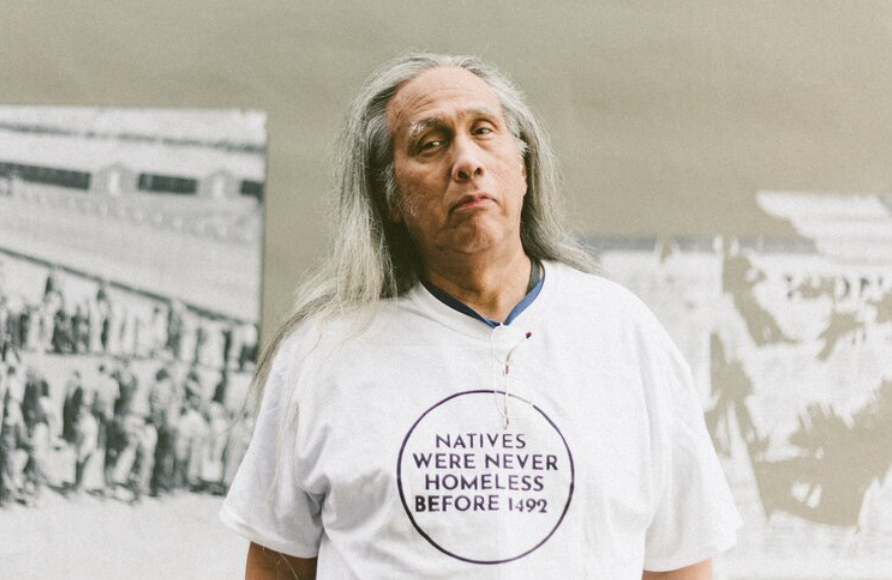
- Details
- By Native News Online Staff
On Thursday, President Donald Trump signed an executive order called “Ending Crime and Disorder on America’s Streets” that aims to rid American cities of homelessness.
The executive order seeks to reduce homelessness through stricter enforcement, increased use of involuntary treatment and commitment, and defunding of harm-reduction efforts, with a strong focus on public safety and program accountability.
Native Americans are 7.5 times more likely to experience homelessness, according to Seattle Indian Health Board data.
The following statement from Derrick Belgarde (Siletz/Chippewa-Cree), CEO of the Chief Seattle Club:
“The Trump Executive Order punishing jurisdictions that do not remove visible signs of homelessness is an especially cruel act from an administration that has gutted federal funding for housing solutions, behavioral health, and proven treatment and recovery programs.
It’s unfortunate that lawmakers continue to criminalize homelessness instead of working towards solutions that safely house and protect our most vulnerable relatives. “
The order specifically calls out housing first solutions, a data-proven method of housing our relatives who are struggling with substance use disorder and mental health crises.
At Chief Seattle Club, we know that providing a safe and permanent place to live and sleep makes it easier to bring people long-term stability. Recent King County data shows that housing first led to fewer emergency room visits for our unhoused relatives. This isn’t surprising. We’ve seen firsthand through our work as housing providers the ways in which people transform through stable housing. Their health improves, their ability to maintain employment improves, and their chances of long-term sobriety greatly increases.
At Chief Seattle Club, we believe housing comes first and then you can bring people the services they need. And with time, we can bring our Indigenous relatives the culture and ceremony that creates even greater stability and health.
As a nation, and as a community, we have seen more and more movement towards encampment sweeps. We must become more uncomfortable as Americans with the idea that people are living on the cold, wet streets than we are with the sight of unhoused people. The issue is not with visible litter or tents on sidewalks, but with the very fact that, as the richest nation in the world, we are failing our most vulnerable citizens through a lack of political will to fully fund the necessary solutions to homelessness.”
More Stories Like This
‘I Was Not Used to Being Hunted’: Vietnam Veteran Joseph Suina Finds Healing Through Culturally Grounded CareWilton Rancheria Donates $50,000 and 418 Turkeys to Food Bank Amid Shutdown Aftermath
Alaska’s commercial salmon harvest rebounds after ultra-low harvest last year
Ak-Chin Selected for New IHS Tribal Health Center
The Indian Health Service Is Flagging Vaccine-Related Speech. Doctors Say They’re Being Censored.

